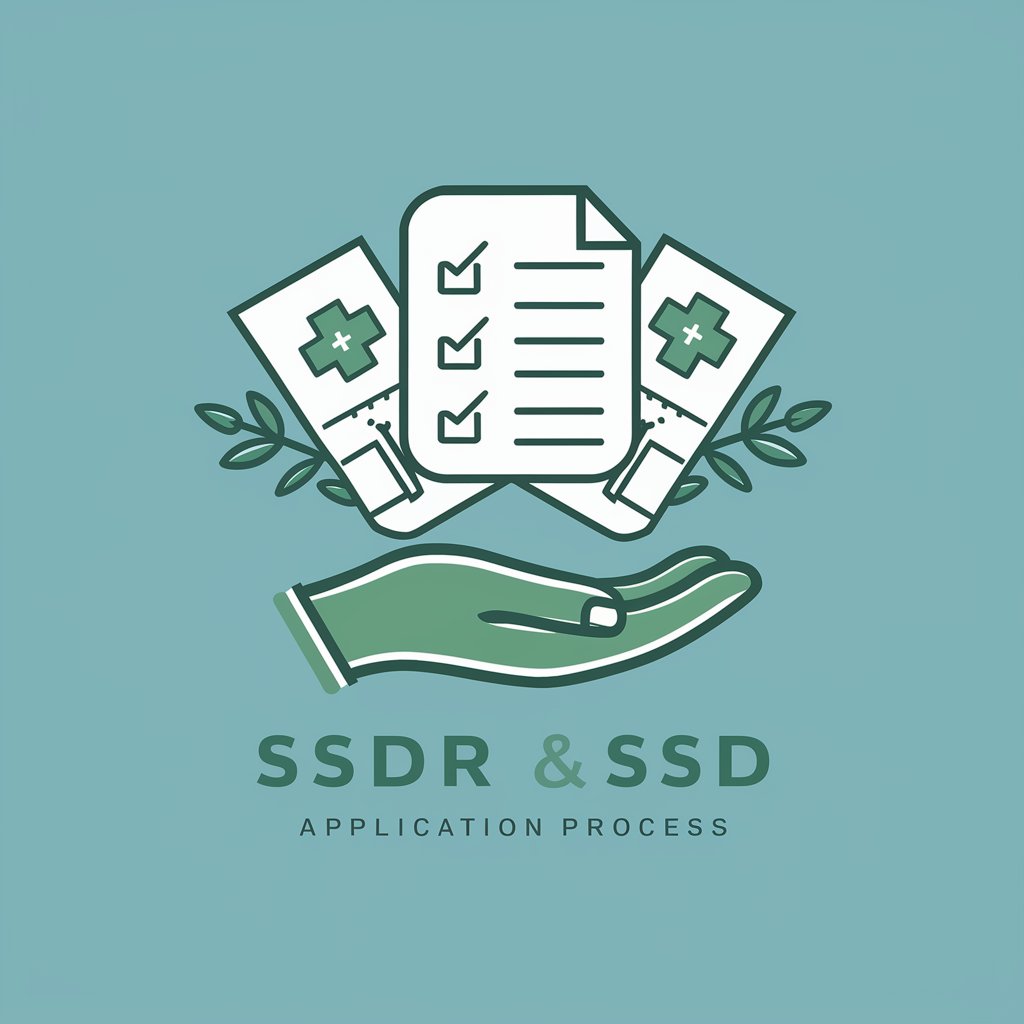7 GPTs for Disability Claims Powered by AI for Free of 2026
AI GPTs for Disability Claims are advanced tools that leverage Generative Pre-trained Transformers (GPTs) technology to offer specialized assistance in managing and processing disability claims. These AI solutions are designed to understand, interpret, and automate tasks related to disability claims, making them highly relevant for insurers, healthcare providers, and claimants. By using natural language processing and machine learning, these tools can analyze claims data, provide insights, and support decision-making, thereby streamlining the disability claims process.
Top 7 GPTs for Disability Claims are: Archie Veterans Affairs assistant,Vet Benefits Coach,VA Claims Guide Veterans,Benefit Guide,Veteran Resource Advisor,SSD Aplication Wiz #1 for Super Support Dammit,Especialista em Direito Previdenciário
Archie Veterans Affairs assistant
Empowering Veterans with AI-Powered Support

Vet Benefits Coach
Empowering Veterans with AI-Driven Guidance

VA Claims Guide Veterans
Navigating VA Claims with AI Power

Benefit Guide
Empowering Disability Claims with AI

Veteran Resource Advisor
Empowering Veterans with AI-Powered Support

SSD Aplication Wiz #1 for Super Support Dammit
Powering SSD Applications with AI

Especialista em Direito Previdenciário
Empowering Legal Insight with AI

Essential Attributes of Disability Claims AI Tools
AI GPTs tools for Disability Claims stand out due to their adaptability and comprehensive capabilities. Key features include natural language understanding for processing claim documents, automated responses to frequently asked questions, and the ability to analyze complex data sets to identify patterns or anomalies in claims. Furthermore, these tools can be customized for specific needs, from generating reports to assisting in fraud detection. Their ability to learn from interactions and data updates ensures they remain relevant and effective.
Who Benefits from Disability Claims AI Solutions
These AI tools are designed for a wide range of users, including insurance claim handlers, healthcare professionals dealing with claims, policyholders filing claims, and developers in the insurance tech space. They are accessible to those without technical backgrounds through user-friendly interfaces, while also offering extensive customization options for users with programming skills. This inclusivity ensures that anyone involved in the disability claims process can leverage these tools to improve efficiency and accuracy.
Try Our other AI GPTs tools for Free
Education Benefits
Discover how AI GPTs revolutionize learning with personalized, adaptable tools designed to enhance educational experiences and outcomes.
Healthcare Access
Discover how AI GPTs for Healthcare Access are revolutionizing patient care and healthcare management with advanced AI capabilities, making healthcare services more accessible, efficient, and personalized.
Benefit Appeals
Unlock the power of AI for your benefit appeals with AI GPTs. Streamline the process, improve accuracy, and secure better outcomes with advanced AI technology tailored for appeals.
Ergonomic Equipment
Discover AI GPT tools for Ergonomic Equipment: intelligent, user-friendly solutions for optimizing workplace comfort, safety, and efficiency.
Health Promotion
Discover how AI GPTs for Health Promotion are revolutionizing health education and wellness advice with personalized, accessible solutions.
Practical Advice
Discover how AI GPTs for Practical Advice utilize advanced AI to offer tailored, real-world solutions across diverse topics, making complex information accessible and actionable for everyone.
Expanding Possibilities with Disability Claims AI
AI GPTs as customized solutions bring transformative benefits across various sectors involved in disability claims. With user-friendly interfaces and potential for seamless integration into existing workflows, these tools not only enhance operational efficiency but also open up new avenues for data-driven insights and decision-making in the disability claims management process.
Frequently Asked Questions
What exactly are AI GPTs for Disability Claims?
AI GPTs for Disability Claims are intelligent systems that apply generative pre-trained transformer technology to automate and enhance the processing of disability claims.
How do these tools improve the disability claims process?
They streamline the process by automating document analysis, providing accurate responses to inquiries, and identifying patterns in data to assist in decision-making.
Can non-technical users operate these AI tools?
Yes, the tools are designed with user-friendly interfaces that require no coding skills, making them accessible to anyone involved in the disability claims process.
What customization options are available for developers?
Developers can customize the tools to specific needs, such as integrating with existing systems, tailoring the AI's learning process, or adding new functionalities.
Are these tools capable of detecting fraud in disability claims?
Yes, through data analysis and pattern recognition capabilities, the AI can help identify potential fraudulent claims.
How do these AI tools stay up-to-date with new information?
They continuously learn from interactions and data inputs, ensuring their analysis and outputs remain accurate and relevant.
Can AI GPTs handle sensitive information securely?
Yes, these tools are designed with security measures to manage sensitive data securely and comply with privacy regulations.
What impact do AI GPTs have on the accuracy of disability claims processing?
By automating and enhancing data analysis, these tools significantly increase the accuracy and efficiency of the claims processing, reducing errors and improving decision-making.